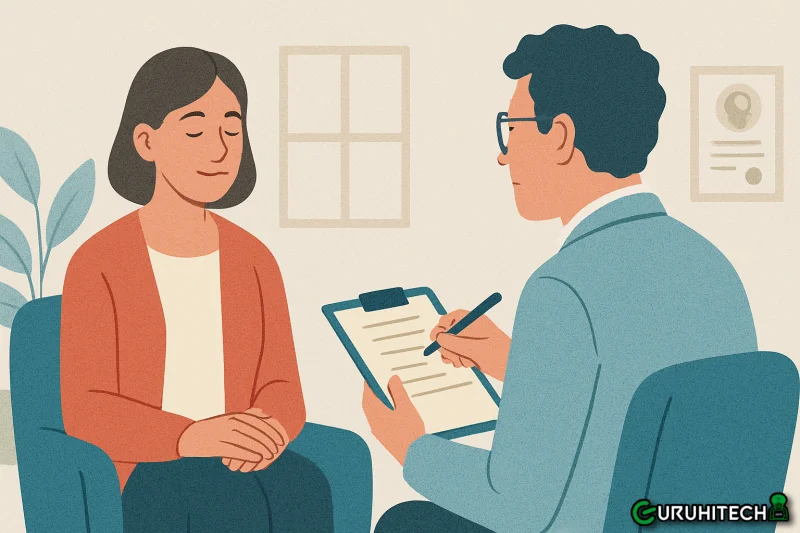How People Are Finding Stability Through Modern Psychiatric Care

Many individuals carry emotional strain for years before anyone notices. Work gets harder. Sleep changes. Small problems feel heavier than they used to. Some people describe it as running out of steam. Others say they feel “off” but can’t explain why. When that feeling becomes part of daily life, it is easy to think nothing will help. But modern psychiatric care is giving them a different experience. More clarity, more tools, more steady support.
People often assume mental health treatment is only for extreme situations. It isn’t. Most people who seek help are simply tired of feeling up and down. They want a sense of control again. They want days that feel normal. And they want someone who listens without judgment.
Why Personalized Care Matters More Than Ever
Life today moves fast. Deadlines, family schedules, financial pressure, and constant noise from phones and news feeds. These things add up. For someone already dealing with emotional instability, it can feel like being pulled in ten different directions at once.
Personal psychiatric care gives everybody a place to slow down. To look at what has been happening beneath the surface. A full evaluation is often the first real moment of understanding someone has had in years. It can explain why small tasks feel overwhelming or why moods shift without warning.
When professionals take time to understand someone’s history, symptoms, and stress patterns, treatment feels less like a label and more like a roadmap. That is when people start to notice real change.
Gimel Health plays a role in this landscape by bringing structured, evidence-based support to adults who need calm, steady guidance.
Medication Options That Meet People Where They Are
Medication is not the goal for everyone. But for many, it becomes a turning point. Modern medication plans are more flexible than older approaches. Instead of one-size-fits-all prescriptions, clinicians now consider genetics, sleep cycles, lifestyle, and even diet.
Anyone exploring bipolar medication today often describes the same shift: the world feels less chaotic. The emotional spikes soften. Decisions become easier. Life begins to move at a pace they can manage.
For others, medication simply helps lift the fog so therapy and coping skills can work. What matters most is not the diagnosis but the fit. A small adjustment can change the way someone handles stress or communicates with the people around them.
Seeing Your Own Patterns Makes Treatment Stronger
Most are surprised by how much insight changes their day. When someone learns to spot early signs of distress, they can act before symptoms grow. A shorter temper. Trouble focusing. Too much caffeine. Staying up late again. These little clues add up.
Recognizing patterns builds self-trust. It tells people, “I know what this feeling means—and I know what to do with it.” That confidence reduces fear and helps prevent setbacks.
Insight also helps in relationships. When people understand what triggers them, they communicate better. They pull back before conflict escalates. They can explain what they need instead of shutting down. These small adjustments strengthen progress more than most people expect.
What Comprehensive Support Looks Like
People dealing with mood instability usually want more than a quick fix. They want steady care that does not disappear after a single appointment. They want a team that checks in, adjusts medication when necessary, and gives them tools that fit real life.
Some explore therapy alone. Others combine therapy with structured medical treatment, such as treatment for mood disorders supported through ongoing medication management. Having both options gives you a more balanced way to recover.
Support also matters during stressful life changes. A tough work season. A breakup. An illness in the family. These moments often test someone’s stability, and strong clinical follow-up helps people stay grounded.
How Technology Helps Stay Consistent
Digital tools are becoming essential for managing mood challenges. Mood tracking apps. Sleep monitors. Secure messaging for follow-ups. These tools help people stay connected, even on difficult days.
Technology also gives clinicians better information. Trends in sleep, daily energy, or irritability help shape medication decisions and therapy plans. We no longer have to rely purely on memory. They have real data to work with.
A Stable Plan Helps Rebuild Confidence
Most individuals who start psychiatric care want one thing: stability. They want mornings that feel predictable and evenings that don’t spiral. They want fewer emotional surprises. When the right plan is in place, this becomes possible.
A strong plan usually blends therapy, medication if needed, insight-building, and regular follow-ups. When these pieces work together, people feel more in control of their days. They can focus at work, they can participate fully in relationships, they feel more like themselves again.
Conclusion
Emotional instability can affect every part of life, but you do not have to navigate it alone. With clearer evaluations, modern medication options, and steady therapeutic support, people can move toward a life that feels calmer and more predictable. No one needs to wait for symptoms to become severe before seeking help. A single step toward clarity can open the door to long-term balance.
Those wanting to explore resources or learn more about their options can learn more through reputable platforms that share guidance and educational information without overwhelming readers.
Ti potrebbe interessare:
Segui guruhitech su:
- Google News: bit.ly/gurugooglenews
- Telegram: t.me/guruhitech
- X (Twitter): x.com/guruhitech1
- Bluesky: bsky.app/profile/guruhitech.bsky.social
- GETTR: gettr.com/user/guruhitech
- Rumble: rumble.com/user/guruhitech
- VKontakte: vk.com/guruhitech
- MeWe: mewe.com/i/guruhitech
- Skype: live:.cid.d4cf3836b772da8a
- WhatsApp: bit.ly/whatsappguruhitech
Esprimi il tuo parere!
Ti è stato utile questo articolo? Lascia un commento nell’apposita sezione che trovi più in basso e se ti va, iscriviti alla newsletter.
Per qualsiasi domanda, informazione o assistenza nel mondo della tecnologia, puoi inviare una email all’indirizzo [email protected].
Scopri di più da GuruHiTech
Abbonati per ricevere gli ultimi articoli inviati alla tua e-mail.
